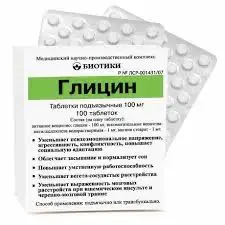Description
Amdoal Pharmacodynamics
The therapeutic activity of aripiprazole in schizophrenia is thought to be due to a combination of partial agonist activity for D2-dopamine and 5HT1a-serotonin receptors and antagonist activity for 5HT2-serotonin receptors.
Aripiprazole has high in vitro affinity for D2- and D3-dopamine receptors, 5HT1a- and 5HT2a-serotonin receptors and moderate affinity for D4-dopamine receptors, 5NT2s and 5NT7-serotonin receptors, alpha 1-adrenoreceptors and H1-histamine receptors. Aripiprazole is also characterized by a moderate affinity for serotonin reuptake sites and a lack of affinity for muscarinic receptors. In animal experiments, aripiprazole exhibited antagonism to dopaminergic hyperactivity and agonism to dopaminergic hypoactivity. Some clinical effects of aripiprazole are attributed to interactions with other receptor types (non-dopamine and serotonin receptors).
Indications
– Schizophrenia: acute attacks and maintenance therapy.
– Bipolar I disorder: manic episodes and maintenance therapy to prevent relapse in patients with bipolar I disorder who have recently had a manic or mixed episode.
– Complement therapy with lithium or valproic acid to treat manic or mixed episodes in type I bipolar disorder with or without psychotic symptoms and maintenance therapy to prevent relapse in patients with type I bipolar disorder.
– An adjunct to antidepressant therapy in major depressive disorder.
Contraindications
– Hypersensitivity to aripiprazole or any other component of the drug;
– Age under 18 years;
– Breast-feeding period;
– Lactase deficiency, rare hereditary galactosemia, glucose-galactose malabsorption.
With caution.
Cardiovascular diseases (coronary heart disease or myocardial infarction, chronic heart failure and conduction disorders); cerebrovascular diseases and conditions predisposing to arterial pressure decrease (dehydration, hypovolemia, hypotensive drugs) due to possible orthostatic hypotension; epilepsy, diseases with possible development of convulsions; increased risk of hyperthermia (e.g., in case of intense physical exertion, overheating, taking drugs with m-cholin-blocking activity, dehydration due to the ability of antipsychotics to disrupt thermoregulation); in patients at risk of aspiration pneumonia because of the risk of esophageal motor dysfunction and aspiration; in patients with a family history of obesity or diabetes; high risk of suicide (psychosis, bipolar disorder, major depressive disorder); age 18-24 because of the risk of suicidal behavior.
If you have any of the above diseases or conditions, consult your doctor before taking this medication.
Use in pregnancy and during breastfeeding
Adequate and well-controlled studies in pregnant women have not been conducted. Congenital abnormalities have been reported, but a causal relationship with aripiprazole could not be established. Due to insufficient safety data, Amdoal® may only be taken during pregnancy if the potential benefit to the mother exceeds the potential risk to the fetus. Patients should be warned about the need to inform the physician immediately about the occurrence of pregnancy during treatment with aripiprazole, as well as about the need to report the planned pregnancy. Neonates whose mothers took neuroleptics during the third trimester of pregnancy are at risk of developing extrapyramidal disorders and/or withdrawal syndrome in the postpartum period. Newborns have been noted to have
agitation, increased or decreased muscle tone, tremors, somnolence, respiratory distress syndrome, and feeding disturbances. These symptoms had varying degrees of severity; sometimes they disappeared without treatment, while in other cases newborns needed intensive therapy and prolonged hospitalization. In aripiprazole, the development of these symptoms in the neonates was very rare.
Patients should be warned that they should immediately inform their physician about the occurrence of pregnancy during treatment, they should also inform the physician about the planned pregnancy.
Breastfeeding. Aripiprazole penetrates into breast milk. If it is necessary to use the drug, breastfeeding should be discontinued.
Dosage and administration
- Orally, once a day, regardless of meals.
? Schizophrenia: Recommended starting dose is 10-15 mg once daily. The maintenance dose is usually 15 mg per day. The drug is effective in doses of 10 to 30 mg/day. The maximum daily dose is 30 mg.
? Manic episodes in bipolar disorders: - Monotherapy .
The recommended starting dose is 15 mg/day. If necessary, the daily dose may be changed no earlier than 24 hours after the last dose. Doses of 15-30 mg/day for 3-12 weeks in patients with mania episodes have been proven effective in clinical trials. The maximum daily dose is 30 mg. The safety of doses greater than 30 mg/day has not been studied. In observing patients with bipolar type I disorder who had a manic or mixed episode and who experienced stabilization of symptoms on aripiprazole (15 mg/day or 30 mg/day at an initial dose of 30 mg/day) for 6 weeks, then 6 months and further for 17 months, favorable effects of such maintenance therapy have been established.
Patients should be evaluated periodically to determine the need for continued maintenance therapy. - ? Complement therapy with lithium or valproic acid for the treatment of manic or mixed episodes in type I bipolar disorder: the recommended initial dose is 10 to 15 mg once daily, with a maintenance dose of 15 mg/day. The dose may be increased to 30 mg/day depending on clinical indications. When monitoring patients with type I bipolar disorder
6/17
aripiprazole maintenance therapy at a dose of 10 to 30 mg/day as an adjunct to therapy with lithium or valproic acid has been found to be beneficial. Patients should be evaluated periodically to determine the need for continued maintenance therapy. - ? Complementary therapy for major depressive disorder: when supplemented with antidepressant therapy, the recommended initial dose is 5 mg/day. In case of necessity and good tolerability of therapy the daily dose can be increased weekly by 5 mg up to maximum – not more than 15 mg/day.
- The duration of therapy for all the above indications has not been established. The patient should be regularly examined for the possibility of withdrawal of therapy.
Use in special groups of patients: - Patients with renal insufficiency.
No dose adjustment is required in patients with renal failure.
Patients with hepatic insufficiency.
No dose adjustment is required in patients with hepatic impairment. However, a daily dose of 30 mg should be administered with caution in patients with severe hepatic impairment. - Administration in patients over 65 years old.
No dosage adjustment is required.
Influence of sex on dosage regimen
The dosage regimen is the same for patients of both sexes.
Effect of smoking on dosing regimen
The dosing regimen for smoking and non-smoking patients is the same.





